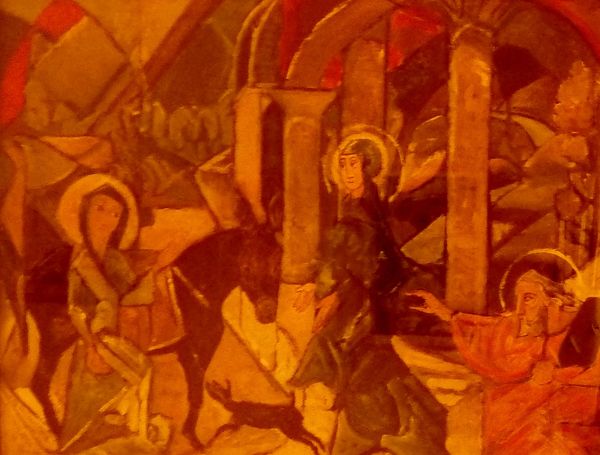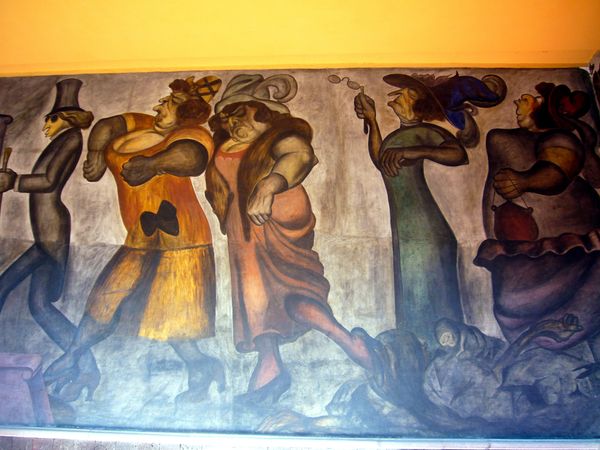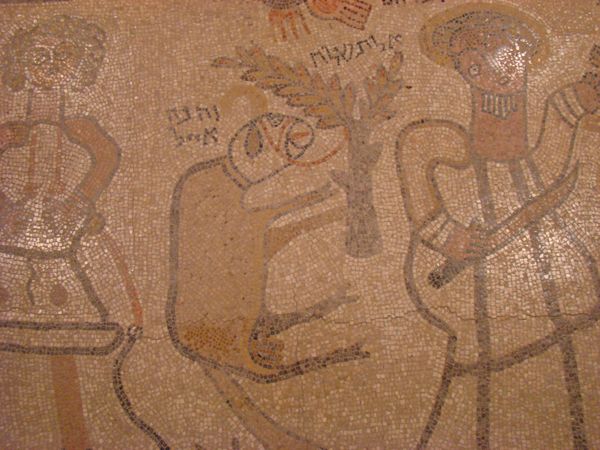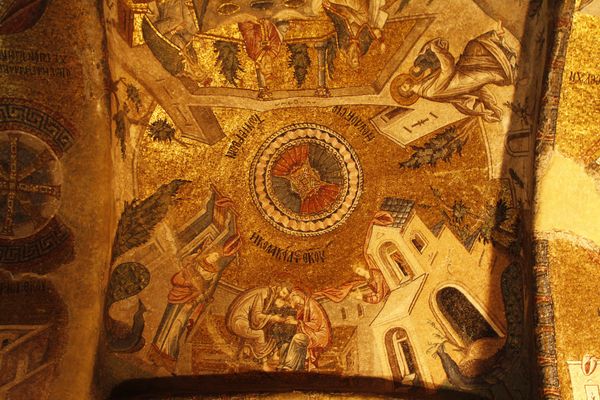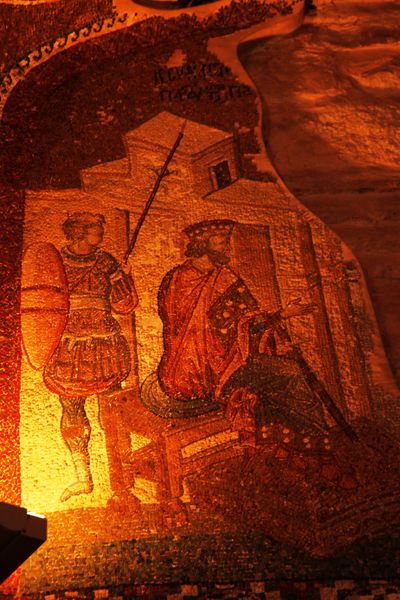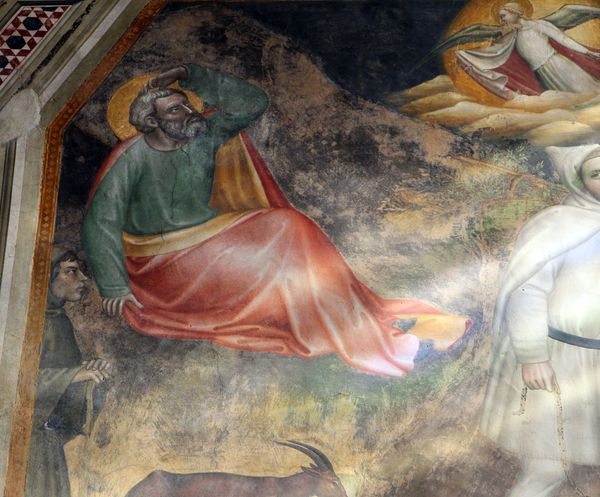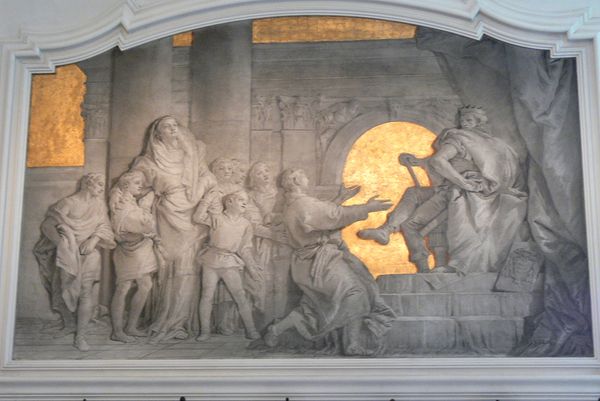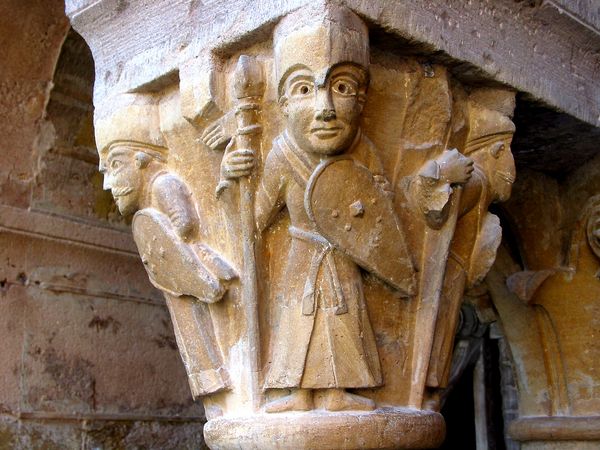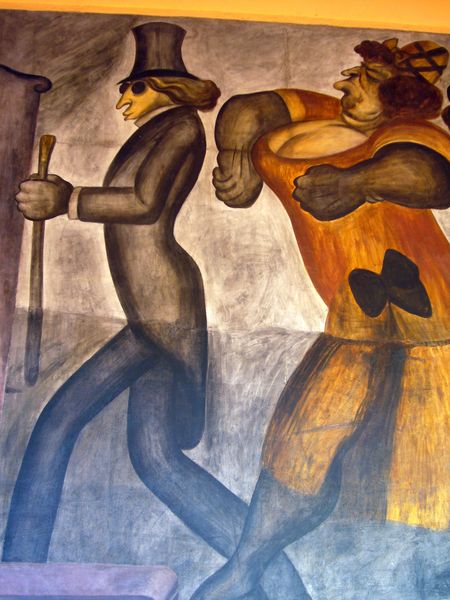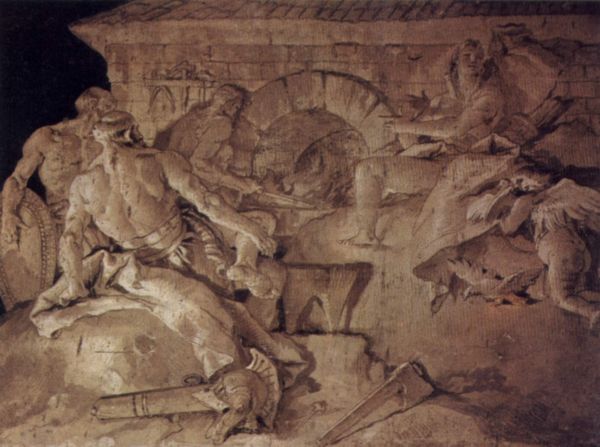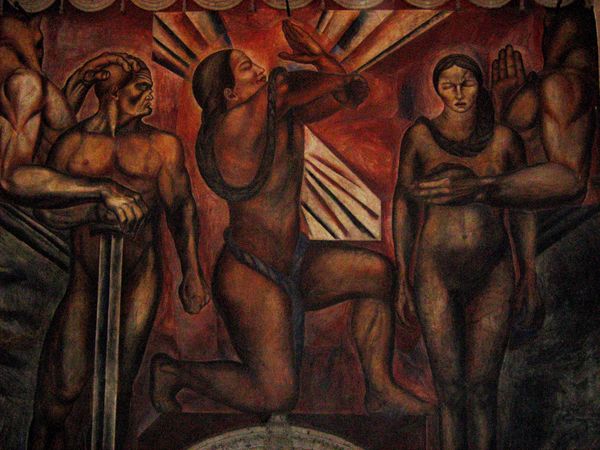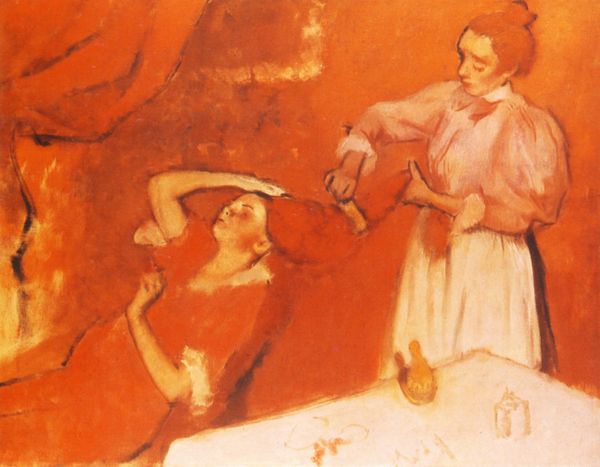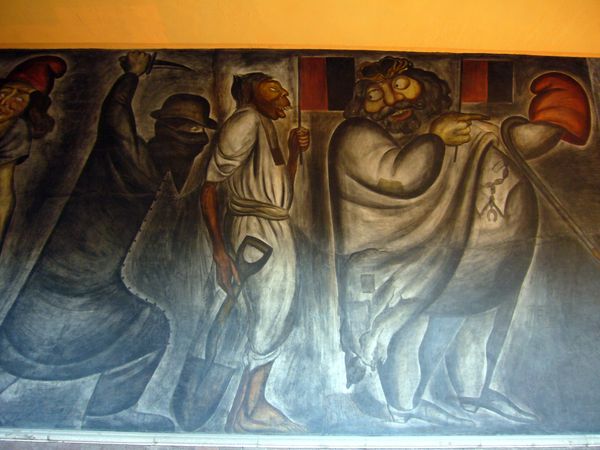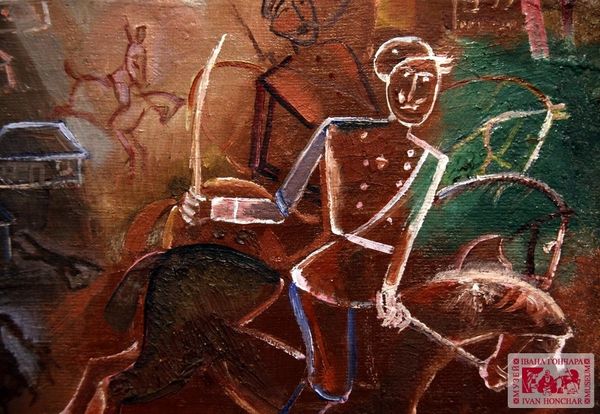
tempera, painting, fresco, mural
#
byzantine-art
#
water colours
#
narrative-art
#
tempera
#
painting
#
figuration
#
fresco
#
line
#
history-painting
#
mural
#
watercolor
Copyright: Jean Cocteau,Fair Use
Editor: Here we have Jean Cocteau’s "Interieur chapelle Saint Blaise," a mural created in 1959 using tempera. It strikes me as a blend of ancient and modern styles, a fresco painted with strong lines, yet with somewhat haunting undertones. What do you see in this piece, particularly given Cocteau's background? Curator: Indeed. Considering Cocteau's diverse artistic pursuits, this mural within the Chapel of Saint Blaise needs to be analyzed within its historical and social context. Post-war France was rebuilding, both physically and spiritually. This work appears to draw heavily from Byzantine art, a style laden with religious and political symbolism. Look at the narrative scene; what socio-political statements do you think Cocteau might be making by depicting a spiritual, historical event in this manner for a post-war audience? Editor: I hadn’t considered that deeply, but the stark figures and narrative suggest a yearning for stability and meaning, maybe? The rawness of the lines combined with the religious theme hints at the struggles to find peace amidst devastation. Curator: Precisely. Cocteau positions art in a public space to negotiate cultural memory. This fresco becomes a site where individual suffering connects with collective history. He isn't just creating a pretty picture; he's engaging in a visual dialogue with French identity. Notice, also, how his choices for fresco, a very public form of painting, serves his larger goals of using art as an active force in cultural conversation. Editor: That’s a great point, thinking of it as less a static image and more an intervention. Understanding the setting truly reframes the whole mural! Curator: And that's how art history opens up understanding: not just in seeing the piece, but recognizing what it meant, where it was placed, and what effect it hoped to have in shaping a society.
Comments
No comments
Be the first to comment and join the conversation on the ultimate creative platform.
